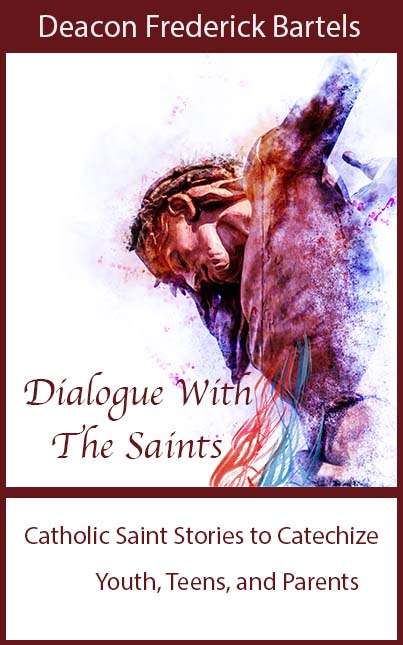
Saint Bonaventure, The Seraphic Doctor, was born in 1221, near Orvieto. In his early twenties, he entered the Franciscan Order and was eventually chosen its General. He studied in Paris, earning a doctorate in theology in 1248. In 1273, he was installed as Cardinal of Albano and played an important role at the Council of Lyons.
By Deacon Frederick Bartels
15 July 2020
Fr. Christopher Rengers describes Saint Bonaventure as a man who loved learning. For him, learning “properly guided by love, must lead to a greater love of God” (The 33 Doctors of the Church, 341). For Bonaventure, the whole point of learning was ultimately to come to know who God really is. Whether one examined creation through the natural sciences or engaged in the pursuit of wisdom through philosophy or sought to become immersed in the divine speech of God through the discipline of theology–all of it should be ordered toward knowledge of God and love of him.
For Bonaventure, reason and science and faith were not isolated disciplines, entirely disconnected from each other. On the contrary, each of these are paths to God in their own way. Study of the natural world and the beauty of creation is ultimately a study of God because he is its Author—it flowed from his hands as its first-order cause. As Vatican I pointed out, God is both Creator of the world and the one who bestows the gift of faith. Reason and faith cannot be in contradiction because God who is truth is the author of both, and truth cannot contradict truth.
As much as Saint Bonaventure loved learning, he emphasized the importance of desire of the will, grace, and setting aside earthly concerns so as to enter into an intimate, mystical experience of Christ. For Bonaventure, the key is found in one’s longing for God and developing a thirst for the divine. Here, the desire of the heart takes precedence.
Let us die, then, and enter into the darkness, silencing our anxieties, our passions and all the fantasies of our imagination. Let us pass over with the crucified Christ from this world to the Father, so that, when the Father has shown himself to us, we can say with Philip: It is enough.
Saint Bonaventure
Saint Bonaventure wrote in the Journey of the Mind to God:
Christ is both the way and the door. Christ is the staircase and the vehicle, like the throne of mercy over the Ark of the Covenant, and the mystery hidden from the ages. A man should turn his full attention to this throne of mercy, and should gaze at him hanging on the cross, full of faith, hope and charity, devoted, full of wonder and joy, marked by gratitude, and open to praise and jubilation. Then such a man will make with Christ a pasch, that is, a passing-over. Through the branches of the cross he will pass over the Red Sea, leaving Egypt and entering the desert. There he will taste the hidden manna, and rest with Christ in the sepulcher, as if he were dead to things outside. He will experience, as much as is possible for one who is still living, what was promised to the thief who hung beside Christ: Today you will be with me in paradise.
For this passover to be perfect, we must suspend all the operations of the mind and we must transform the peak of our affections, directing them to God alone. This is a sacred mystical experience. It cannot be comprehended by anyone unless he surrenders himself to it; nor can he surrender himself to it unless he longs for it; nor can he long for it unless the Holy Spirit, whom Christ sent into the world, should come and inflame his innermost soul. Hence the Apostle says that this mystical wisdom is revealed by the Holy Spirit.
If you ask how such things can occur, seek the answer in God’s grace, not in doctrine; in the longing of the will, not in the understanding; in the sighs of prayer, not in research; seek the bridegroom not the teacher; God and not man; darkness not daylight; and look not to the light but rather to the raging fire that carries the soul to God with intense fervor and glowing love. The fire is God, and the furnace is in Jerusalem, fired by Christ in the ardor of his loving passion. Only he understood this who said: My soul chose hanging and my bones death. Anyone who cherishes this kind of death can see God, for it is certainly true that: No man can look upon me and live.
Let us die, then, and enter into the darkness, silencing our anxieties, our passions and all the fantasies of our imagination. Let us pass over with the crucified Christ from this world to the Father, so that, when the Father has shown himself to us, we can say with Philip: It is enough. We may hear with Paul: My grace is sufficient for you; and we can rejoice with David, saying: My flesh and my heart fail me, but God is the strength of my heart and my heritage for ever. Blessed be the Lord for ever, and let all the people say: Amen. Amen!

Deacon Frederick Bartels is a member of the Catholic clergy who serves the Church in the diocese of Pueblo. He holds an MA in Theology and Educational Ministry, and is a Catholic educator, public speaker, and evangelist who strives to infuse culture with the saving principles of the gospel. For more, visit YouTube, iTunes and Twitter.

Leave a Reply